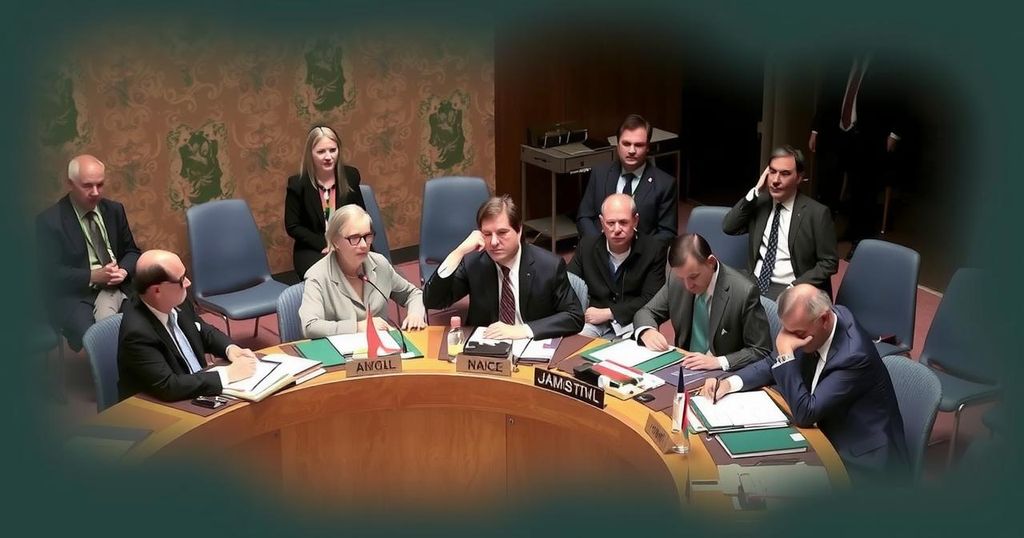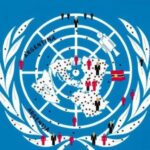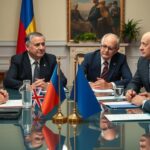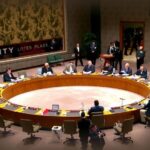Pakistan Reaffirms Support for Occupied Peoples as It Joins UN Security Council
Pakistan has initiated its two-year term as a non-permanent member of the UN Security Council, reaffirming its commitment to advocate for individuals under foreign occupation. Ambassador Asim Iftikhar highlighted the importance of multilateralism and diplomatic solutions to global conflicts, pledging active participation in peacekeeping efforts during this tenure.
On Thursday, Pakistan marked the commencement of its two-year term as a non-permanent member of the United Nations Security Council (UNSC) by raising its flag at the UN headquarters in New York. Pakistan emphasized its dedication to advocating for individuals enduring foreign occupation, reaffirming its historical position on this critical global issue. This term represents Pakistan’s eighth election to the UNSC since it became a UN member in 1947, highlighting its ongoing commitment to international diplomacy and peacekeeping.
The UNSC comprises 15 member states, including five permanent members— the United States, Russia, China, the United Kingdom, and France. The ten non-permanent members are elected for two-year terms, where they actively influence discussions and contribute to the drafting of essential resolutions. During the flag-raising ceremony, Ambassador Asim Iftikhar, Pakistan’s Alternate Permanent Representative to the UN, articulated Pakistan’s guiding principles, emphasizing the need for international peace, security, and the advancement of self-determination for oppressed peoples.
Ambassador Iftikhar asserted, “Pakistan will always remain a strong voice for peoples under foreign occupation and oppression for the realization of their right to self-determination.” His remarks underscored Pakistan’s commitment to multilateralism and cooperative efforts in addressing global challenges. The ambassador acknowledged that effective multilateralism, particularly with the United Nations at its core, is imperative in managing the complex issues faced by today’s international community.
Iftikhar’s address highlighted the necessity of prioritizing dialogue and diplomacy to address the underlying causes of conflicts while fostering confidence-building measures. He emphasized that Pakistan would actively seek equitable resolutions to the issues on the council’s agenda and enhance participation in conflict prevention and peacekeeping initiatives. Pakistan is determined to uphold its responsibilities toward all those affected by conflicts, as articulated by the ambassador, who stated, “Never forgetting our solemn duty toward the millions of men, women, and children suffering in conflicts, Pakistan is fully resolved to our collective endeavor for a more peaceful and secure world.”
The United Nations Security Council serves as a pivotal entity within the UN framework, tasked with maintaining international peace and security. Non-permanent members are crucial in shaping discussions, drafting resolutions, and influencing the direction of global peacekeeping efforts. Pakistan’s election as a non-permanent member reflects its longstanding commitment to international diplomacy and support for the rights of oppressed peoples, particularly in situating itself against foreign occupation.
In conclusion, Pakistan’s election as a non-permanent member of the United Nations Security Council marks a significant opportunity for the country to advocate for self-determination and address issues of foreign occupation. The government has reaffirmed its dedication to promoting peace, security, and multilateralism in addressing global challenges. Through its commitment to dialogue and equitable conflict resolution, Pakistan aims to fulfill its responsibilities on the world stage, emphasizing humanitarian obligations and collective efforts towards a more secure future.
Original Source: www.arabnews.com








Post Comment